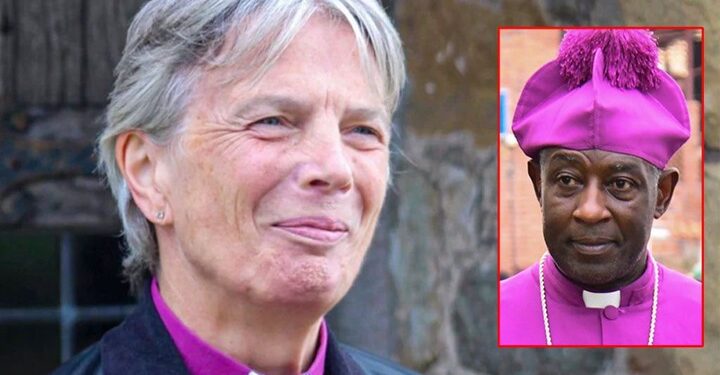The appointment of Cherry Vann as Archbishop of Wales has sparked a wave of condemnation from African Anglican leaders, with several churches cutting ties over what they describe as a departure from Biblical teaching.
Vann, who became the first female and openly lesbian leader of the Church in Wales when she was announced on July 30, previously served as Bishop of Monmouth since 2020. Her elevation has reignited global divisions in the Anglican Communion over issues of sexuality and church doctrine.
On August 7, Archbishop Stephen Kaziimba of the Church of Uganda criticised the decision during a sermon at St. Paul’s Cathedral, Namirembe. “We were all shocked by the appointment of Archbishop Cherry Vann, who is a lesbian,” he said. “This is a wake-up call for the church to repent and return to God’s true path. The scriptures must remain our foundation.”
Archbishop Henry Ndukuba of the Church of Nigeria issued a separate statement condemning the move, calling it “a grievous departure from the historic faith and moral teachings of the Anglican Communion.” He confirmed that the Church of Nigeria has formally severed all official ties with the Church in Wales.
“The Church of Nigeria will not recognise Cherry Vann’s election,” Ndukuba said. “We stand committed to upholding the authority of Scripture and the call to holy Christian living.”
The Church of Uganda has also reaffirmed its break from Western Anglican provinces over similar disputes. In 2023, it cut ties with the Archbishop of Canterbury after the Church of England agreed to bless same-sex couples.
Other African provinces have taken similar positions. The Church of the Province of West Africa ended fellowship with the U.S. Episcopal Church over the acceptance of same-sex unions. The Global South Fellowship of Anglican Churches—which includes provinces from Uganda, Nigeria, South Sudan, Congo, Sudan, and Alexandria—has declared it no longer recognises the Archbishop of Canterbury as the Communion’s spiritual head.
These actions follow the stance of GAFCON (Global Anglican Future Conference), a conservative Anglican movement that has rejected the authority of liberal-leaning provinces and called for a return to what it considers Biblical orthodoxy.
The Church in Wales has not yet issued a direct response to the African statements.
The dispute underlines a widening rift in the Anglican Communion, as many African provinces resist social changes embraced by parts of the church in the West.








